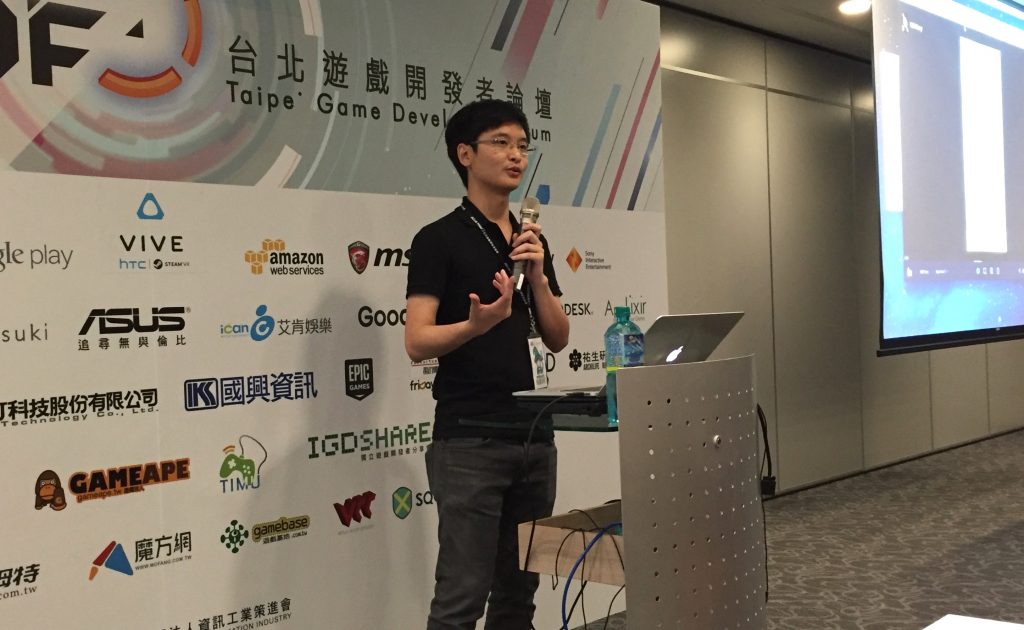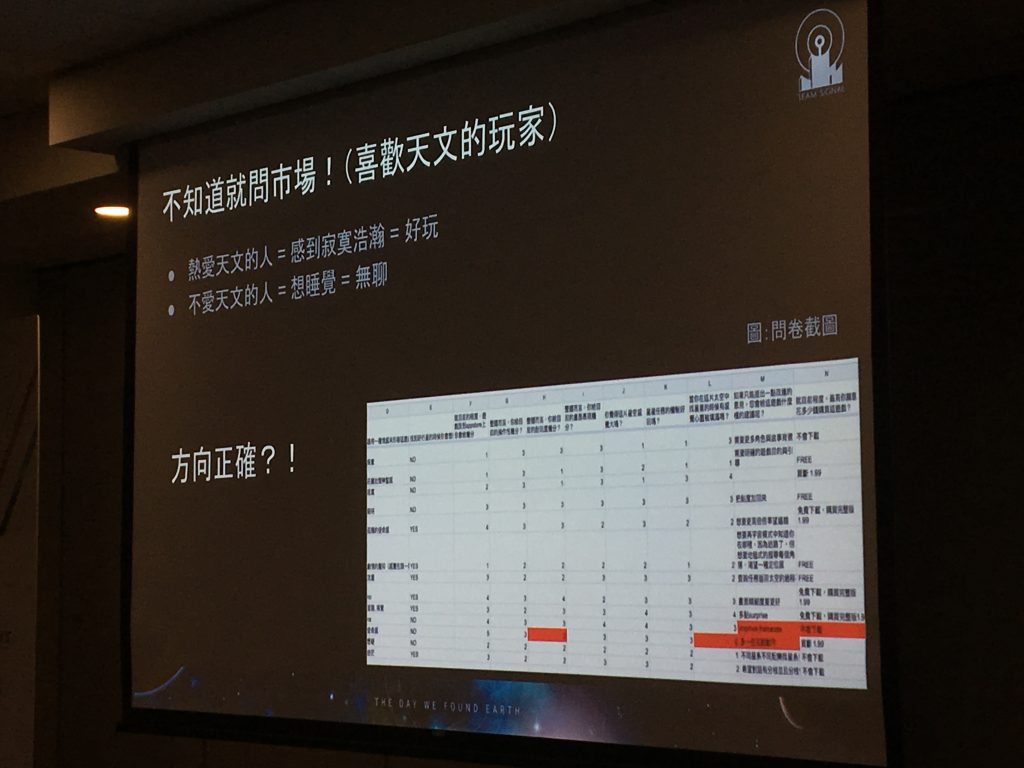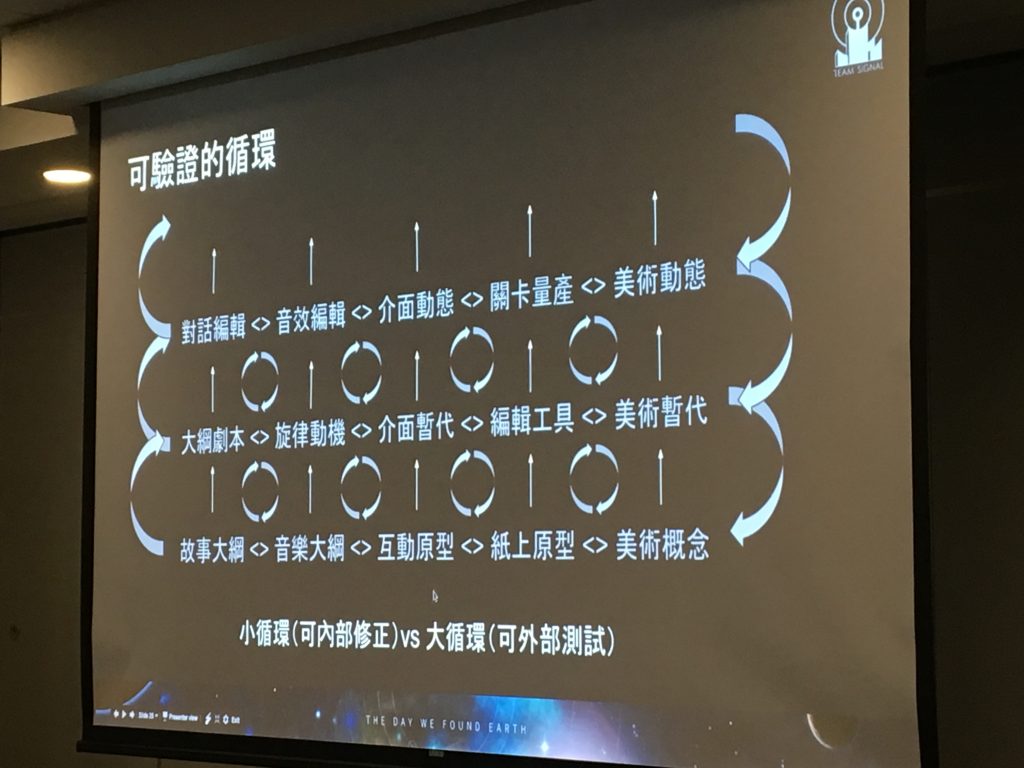OPUS: Stay Humble, Thoughtful and Scientific to Create A Good Mobile Game
Written by PJ H
Translated by 半月
Team Signal, an independent Taiwanese game studio founded in 2013, are unique in their visual presentation and game mechanics. Recently, their newly released game of universe exploration, OPUS: The day we found Earth, passed 1 million downloads. The game was on the finalist list of IMGA – Best Meaningful Play and won the jury prize of Casual Connect.
This time, the cofounder of Team Signal and producer of OPUS, Brian Lee, was invited to give a talk on the topic “Why is it difficult to touch people? What we learned from developping Opus”. During the talk, Brian talked about their experience in the six-month product development process and how they planned and executed their project aiming at “touching” the audience.。

Touch the audience
“Listen, Lisa, it’s impossible for us to find the earth!”
The story of OPUS takes place in the future, millions of years from now. The earth and human being become a legend far away from reality. To keep the promise with Doctor Lisa, Robot Emeth tries to look for the Earth using his telescope.
The goal of the game is to explore the Earth and they aim to touch the players by this story. Here, Brian emphasized the difference between “touching” and “fun”. In the design phase, he once wrote on the blackboard: “Exploration fills the emptiness in people.” They hoped that players can fill the emptiness in life through exploration in the game. Players only need about 2 hours to complete the game. “We don’t want players to stay in the game forever, just 2 hours in a Saturday night. And some day in the future, they may share this game to others because they are touched.”
How do you make players Explore?
First of all, OPUS created a story of a small robot, sitting in a space shuttle, lingering in the universe. The objective was clear: find a planet like the Earth. Based on the framework, they started to think about the story. Emeth, the left child, wanted to fulfill the dream of his ancestors. The experience is mixed by the stage, the gameplay and the stories driving people forward. “We were trying to make players feel something, which is already different from other mere adrenaline-inducing games.”
How do you Create the experience?
The cycle of doing market research, adjusting market position and establishing objectives
At the beginning, Team Signal spent a lot of time finding information other than game mechanics. “We did research on the universe, where the story takes place, and also the market that we are targeting.” According to Brian, they spent 2/3 of time looking for information like distance between planets, the naming system of galaxies. Besides textbook knowledge, they had more to ask the customers.
At first, the players were divided in to “like” and “dislike” astronomy. When asked to play simple astronomical trial game, astronomy fans enjoyed the game and people who dislike astronomy did not. The result was not very informative. Before the second test, Brian decided to modify the story. “At first, the story was about an alien trying to find something. Then, we decided to add a female character, full of emotion, and a male character who was against the exploration project. By these adjustments, we wanted to attract players with less enthusiastic.”
After the adjustments, Team Signal did the second round market research in collaboration with a market research company. “40% of the players liked astronomy, the other 40% liked the story and only 10% of them felt bored.” The result showed that the adjustment they made did work. However, they had to decide whether they wanted to aim at astronomy fans or to use stories to attract players less enthusiastic about the universe?
After some discussion, they decided to put more emphasis on the story. Since even heavy players would stay in the game for only 2 hours, it would be to costly to invest on making the game more “astronomical.” In addition, they had no more than 10 people in the team, which was insufficient to please serious astronomy fans. Thus, they chose to make a game “with good stories and a taste of the universe”.

Fast development, verifiable cycle and group work
These adjustments were made based on “verifiable cycle”(figure below). The development and repositioning process respected the principle of fast development.
“In the testing phase, we did user experience research without any code. Participants talked about how they felt about the story and some testing interface was made to see if we could induce the emotion. The testing interface was far from perfect, which was good for modification.” Brian explained.
“A video game is made of many interfaces and perspectives. Thus, we splitted the project into story, music, interface, game mechanics and art. Executability is key.” For example, when the music outline is ready, the script cannot go too far. Every branch has to go together. This way, they can make sure that everybody is on the same page.
After making sure the small cycle between groups are working fine, OPUS go for the big cycle of market research. “We first make sure that in the company, we are doing what we want to do. Then, we go and check if the audience agrees with us.”

Be humble and try to understand the audience.
Six months after OPUS released, they hit 1.7 million downloads from 0.4 million. The rating in App Store was above 4.5.
Team Signal proved that gaming experience can really touch players. The key is whether the game was designed to meet the target players’ need. Though the talk was about how to touch players, Brian think the key is to spend time understanding the audience.“Be humble and think in their shoes. Create thing that both the audience and producers like. People will be touched!”
中文版連結
Cover photo from TEAM SIGNAL website











留言討論